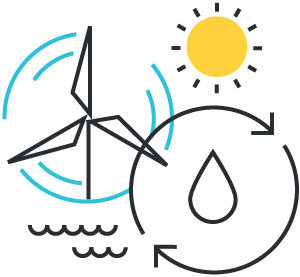Master Plan for Climate Protection
The turnaround in energy policy is one of the most important political and social challenges. In addition to the technological innovations, the human factor is also the focus of interest.

The Technical University Braunschweig, Germany is currently carrying out a pilot project. An interdisciplinary team of architects, city planners, electrical engineers and psychologists developed an integral energy master plan for the University Campus.
After an inventory of the Status Quo, methods and tools for the medium-term of primary energy consumption will be reduced by 40% and for the long-term supply of the campus only renewable energy will be developed.
The transfer of research and development results enables targeted management for the implementation of the turnaround in the energy policy.
In addition to the energy optimization of buildings and environment through new technologies and intelligent planning, the user based energy saving potentials are examined. Particularly, in large service buildings (e.g. Universities) of up to 20% of the energy can be saved through energy-saving behavior and organizational optimization.
Therefore, psychologists of the Department for Industrial/Organizational and Social Psychology are also involved in the master plan of the TU Braunschweig. They developed a communication concept of how users can be motivated to energy-efficient behavior. The communication processes between energy-coaches and users are presented and evaluated by using the Mangold INTERACT based interaction analysis. The aim is to anchor an appropriate communication concept in the energy master plan and to activate the user based energy saving potentials.
Klonek, F., Kauffeld, S., Plesser, S. & Görtgens, A. (2014). Watching how they are talking – Analyzing verbal behavior in two non-residential building projects to save energy by means of user participation. Poster presented at the BEHAVE Conference, Oxford, 03.-04. September 2014.
